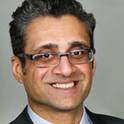| July 2021 - Present | Professor, Western University ‐ Department of Pathology and Laboratory Medicine | |
|
|
||
| October 2007 - Present | Associate Scientist, Lawson Health Research Institute ‐ Children's Health Research Institute (CHRI) | |
|
|
||
Disciplines
Cancer Biology, Cell Biology, Developmental Biology, Immunopathology, Laboratory and Basic Science Research, Cardiovascular Diseases, Disease Modeling, Endocrine System Diseases, Pathological Conditions, Signs and Symptoms, Biochemical Phenomena, Metabolism, and Nutrition, Medical Biochemistry, Medical Molecular Biology, Medical Pathology, and Pathology
Research Interests
| 2001 - 2004 | PhD, Western University ‐ Pathology and Laboratory Medicine | |
|
|
||
| 2000 - 2001 | MSc, Northeastern University ‐ Biomedical Science/Pharmaceutics/Pharmacokinetics | |
|
|
||
| 2000 - 2001 | PB, Northeastern University ‐ Biomedical Science/Pharmaceutics/Pharmacokinetics | |
|
|
||
| 1994 - 1998 | BSc, Dalhousie University ‐ Neuroscience | |
|
|
||
